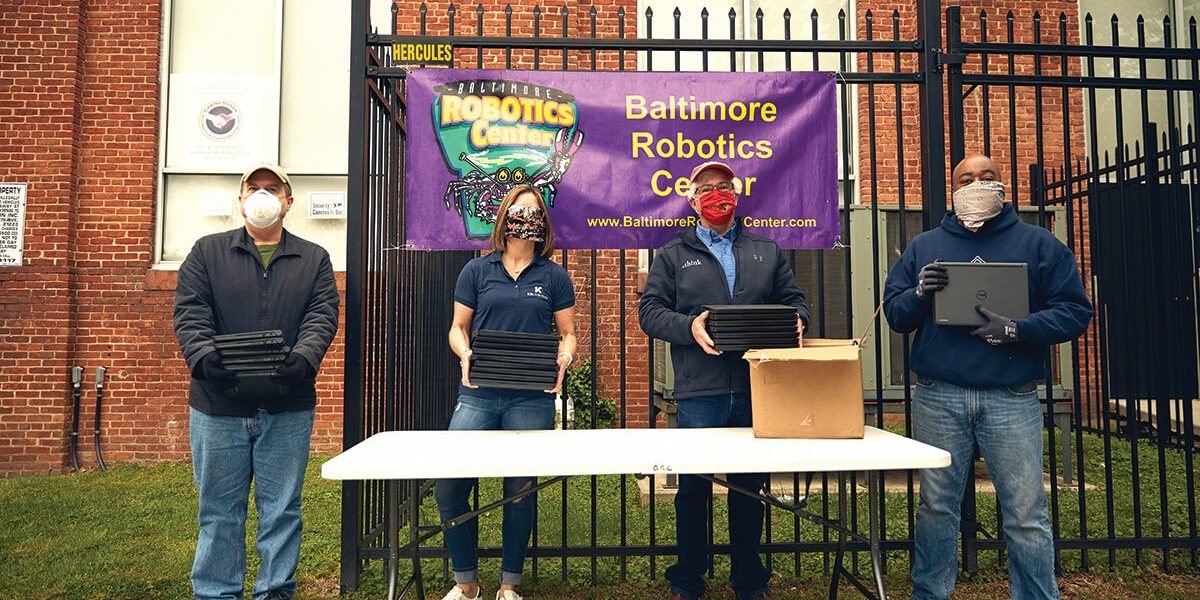COVID-19
How DigiBmore is Putting More Laptops into More Homes
Born out of the pandemic, the coalition works to bridge the city's digital divide.
For many of us, our computers have been a lifeline throughout the coronavirus pandemic—a way to telecommute to work or school, to stay in touch with friends and family, to gain crucial information about the virus, and to even play games and watch TV.
But for 24.6 percent of families in Baltimore, that lifeline is not there—they either have no computer or no access to internet, or both. That so-called “digital divide,” already at crisis levels in Baltimore City, was only exacerbated by COVID-19, says Andrew Coy, executive director of the Digital Harbor Foundation, a nonprofit that engages youth in technology.
“There are real disparities and they have real consequences,” he says.
That’s where the guys from DigiBmore come in. Born out of the pandemic, it’s a loose coalition of members of three nonprofits—Coy’s Digital Harbor, the Baltimore Robotics Center, and Rowdy Orbit, a nonprofit which focuses on expanding access to broadband—dedicated to getting laptops into the hands of families, and hooking them up with the software, training, and connectivity they need.
By late April, DigiBmore received more than 700 requests for laptops and worked at breakneck speed to send them out. Ed Mullin of the Baltimore Robotics Center, an organization that fields competitive robotics teams across the city (“the one sport where everybody can go pro,” he quips), has helped collect as many used laptops as possible, from both corporations and citizens.
“I know in my neighborhood, people will have laptops sitting around their house that they’re not using anymore that they haven’t gotten around to taking to the recycle center,” Mullin says. “Usually we wipe [their data], put in a new operating system, and send them down the road.”
Jonathan Moore of Rowdy Orbit is helping Mullin with that mission and also helping DigiBmore connect with nonprofits that support underserved communities. Meanwhile, Digital Harbor, which already had a digital lending library thanks to a grant from the France-Merrick Foundation, is also acquiring laptops, distributing those laptops to families and nonprofits, and even providing some IT support.
Coy is painfully aware that COVID-19 is a crisis of incalculable measure. But if nothing else, he feels the light it shined on the digital divide is a silver lining.
“We’re addressing a known, decades- long issue,” he says. “I do hope we can come through on the other side stronger for it.”
